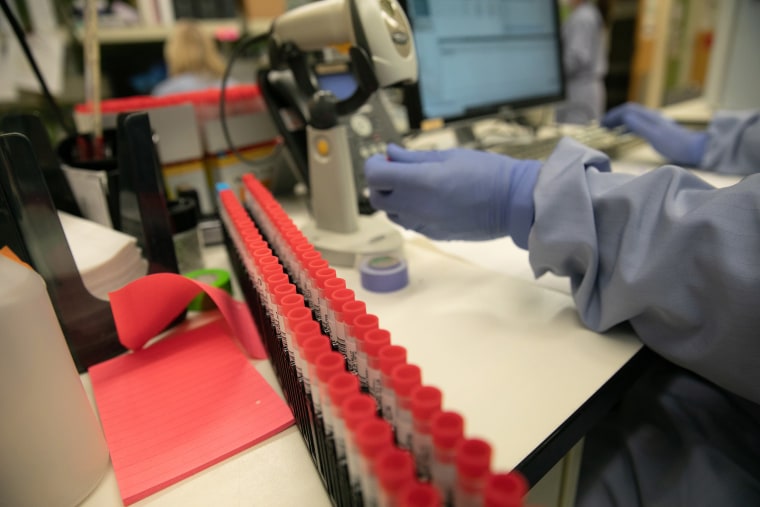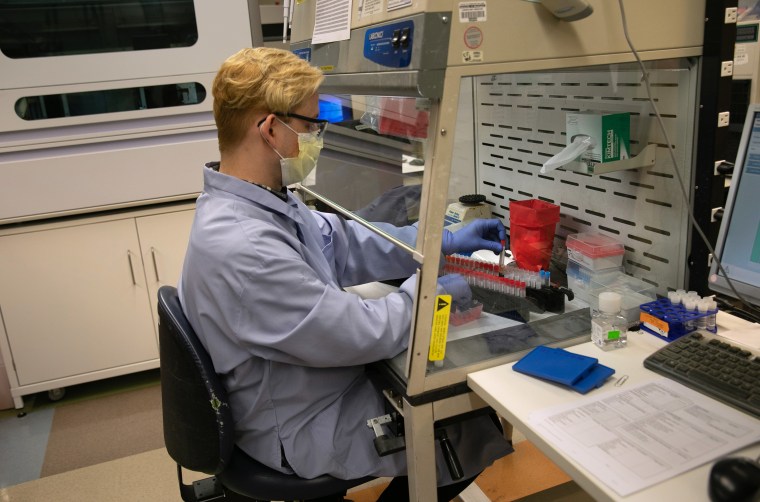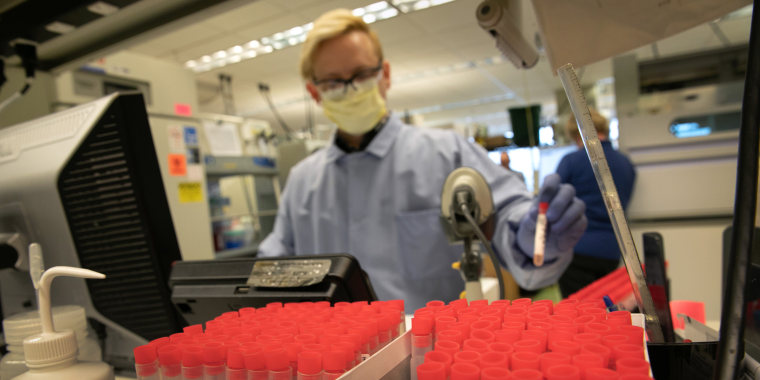When people get a coronavirus test, their deep nasal swab is sent to a lab for analysis. The University of Washington Virology Division in Seattle was one of the first labs to process the tests.
Chris Nelson, a scientist in the biotech industry in the San Francisco Bay area, joined UW Virology as a temporary lab technician this month to help with the growing workload. He shared what it’s like to be on the front lines of coronavirus testing in an interview with TODAY.

I felt called. I wanted to come up and help. I knew the assistant director of UW Virology and I knew he and a lot of people in the lab weren’t sleeping as they tried to boot up and get tests out.
There was a lot going on and they didn’t have all the resources that they’re starting to get now. It’s more sane right now that there are three shifts.
Download the TODAY app for the latest coverage on the coronavirus outbreak.
This is how the process works: At drive-thrus or in hospitals, some brave person puts a swab in your nose and that goes into a tube of liquid called universal transport media. There are things in there to keep the contents stable. They try to keep it cold and sometimes even frozen as much as possible to keep the virus and the viral genome intact so that they can perform the tests on it.
There’s a logistics center at UW that’s collecting all of those shipped-in samples, labeling them and entering them into the tracking system. From there, human couriers with cold boxes bring a big batch of samples in biohazard bags to the lab. They show up maybe every two hours.
I would say I handle at least 200 specimens during a typical eight-and-a half-hour shift.
After checking them into the system, we take them back into a biosafety cabinet, where we unwrap them from the biohazard bag and open up that tube with the pink liquid. The swab that was in somebody’s nose is still inside. You take out some of that liquid into a new tube and that tube can then be handed on to the next step in the process, which is usually more automated.

That’s where my responsibility stops. It’s not rocket science. These things I’m describing are not crazy high tech — there’s a lot of manual labor and that’s kind of the bottleneck. It’s not a moon shot, it’s an exercise in logistics. It’s like a manufacturing line — tube by tube, swab by swab — and that’s what it should be.
We’re following biosafety level 2 precautions, but yes, I worry there’s a chance I might get infected. About 8% of samples in the lab are positive for the new coronavirus. Presumably a lot of the other samples are coming from people who are sick given the way testing is happening. So at the least, I assume each sample might have a rhinovirus that could give you a cold.
I’m living in a $40 Airbnb about 15 minutes from the lab. Basically, I’m only walking to and from the lab. Washington state went on lockdown and the lab gave us passes that say we’re essential personnel in case we get stopped by the police. That little detail made it seem quite serious.
I try not to do the math of: 7 billion people, times 20%-50% of them infected, times a 1% case fatality rate. And those are maybe generous numbers. The goal is to break the epidemiological models, to make the models wrong, to bend the curve down.
Lab workers are the heroes that we should celebrate. We like the narrative of a single person saving us all but it’s more about the quiet unassuming lab tech professionals who are going to help us get out of this.
This interview was edited and condensed for clarity.


